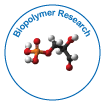当社グループは 3,000 以上の世界的なカンファレンスシリーズ 米国、ヨーロッパ、世界中で毎年イベントが開催されます。 1,000 のより科学的な学会からの支援を受けたアジア および 700 以上の オープン アクセスを発行ジャーナルには 50,000 人以上の著名人が掲載されており、科学者が編集委員として名高い
。オープンアクセスジャーナルはより多くの読者と引用を獲得
700 ジャーナル と 15,000,000 人の読者 各ジャーナルは 25,000 人以上の読者を獲得
抽象的な
Sustainable Solutions from Microbial Biopolymers: Harnessing Nature?s Potential for Eco-Friendly Materials
Xiao C
Microbial biopolymers have emerged as a promising avenue for sustainable solutions in the production of ecofriendly materials. These biopolymers, synthesized by microorganisms through fermentation or metabolic processes, offer several advantages over conventional petroleum-based plastics. This abstract explores the potential of microbial biopolymers, focusing on their sustainable production, unique properties, and diverse applications in various industries. The production of microbial biopolymers presents an opportunity to reduce reliance on fossil fuels and promote the use of renewable resources. Microorganisms can be cultivated on organic waste, agricultural by-products, or even carbon dioxide, minimizing environmental impact and resource depletion. Moreover, the fermentation and metabolic processes used in biopolymer production often require lower energy inputs compared to traditional polymer manufacturing methods. Microbial biopolymers exhibit a wide range of properties that make them attractive for different applications. For example, polyhydroxyalkanoates (PHAs) offer biodegradability, flexibility, and thermoplasticity, making them suitable for packaging, disposable items, and agricultural films. Bacterial cellulose, with its exceptional strength and biocompatibility, finds applications in medical devices, tissue engineering, and food products. Other microbial biopolymers like xanthan gum, pullulan, and dextran are utilized in the food, pharmaceutical, and cosmetic industries due to their thickening, stabilizing, and gelling properties. The utilization of microbial biopolymers for sustainable solutions is an active area of research and development. Efforts are being made to optimize production processes, enhance polymer properties, and explore novel applications. Strategies such as genetic engineering, fermentation optimization, and bioprocess scale-up are employed to increase biopolymer yields, improve performance, and reduce costs. Despite the many advantages, challenges exist in the widespread adoption of microbial biopolymers. Scaling up production to meet industrial demands, achieving cost competitiveness, and addressing regulatory and standardization issues are critical considerations. Additionally, proper end-of-life management, including recycling and disposal methods, must be established to ensure the environmental sustainability of these materials.

 English
English  Spanish
Spanish  Chinese
Chinese  Russian
Russian  German
German  French
French  Portuguese
Portuguese  Hindi
Hindi